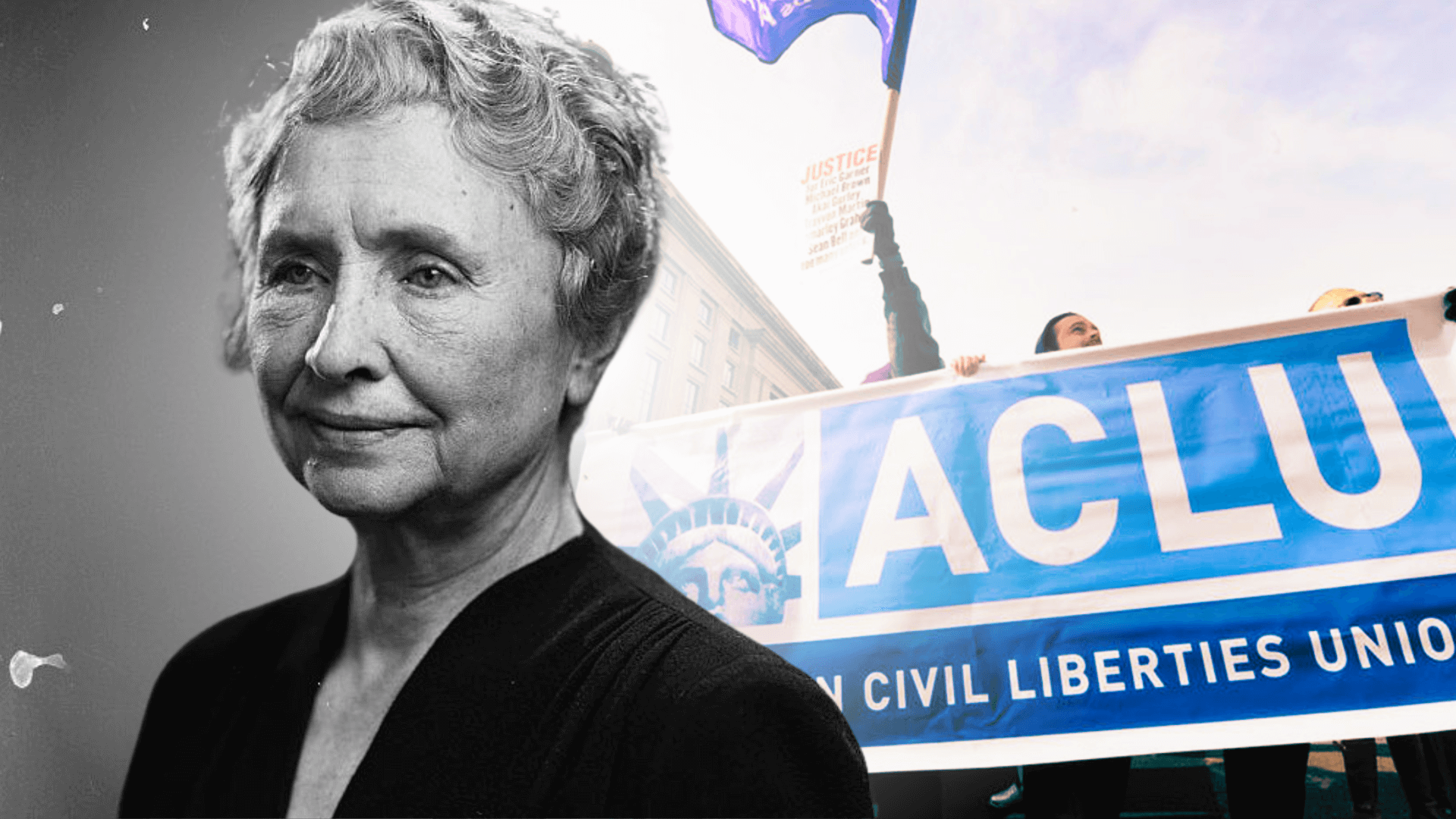Helen Keller Accomplishments
Is Helen Keller real? Such a question might arise when considering the extraordinary achievements of this iconic figure. Helen Keller was indeed real, and her story is one of remarkable triumph over adversity. Known globally as the deaf and blind girl who overcame great challenges, Keller became the first deaf-blind person to earn a college degree from Radcliffe College.
Why is Helen Keller famous? Her fame extends beyond her personal victories to her significant contributions to social advocacy. She worked tirelessly for the rights of people with disabilities and was a prominent member of the American Civil Liberties Union (ACLU). Helen Keller’s legacy is not just in what she accomplished personally but also in how she changed perceptions and advocated for equality and justice.
This article will explore the wide-ranging impact of Helen Keller’s life, demonstrating why she remains an enduring symbol of resilience and potential.
Who Was Helen Keller?
Helen Keller was an American author, lecturer, and activist who passionately advocated for people with disabilities. She was born on June 27, 1880, in Tuscumbia, Alabama. At 19 months old, Keller lost both her sight and hearing due to an illness, possibly scarlet fever or meningitis.
Despite these challenges, Helen Keller achieved remarkable things in her life. She met her teacher, Anne Sullivan, in 1887, who taught her to communicate using sign language and Braille. Sullivan’s unique teaching methods, which involved spelling words into Keller’s hand, opened up the world to her.
Keller did very well in school and became the first deaf-blind person to earn a Bachelor of Arts degree when she graduated from Radcliffe College in 1904. She wrote several books, including her autobiography, “The Story of My Life,” which has been translated into many languages and is still widely read today.
Keller also worked tirelessly as an advocate for people with disabilities and supported many causes, such as women’s rights, workers’ rights, and socialism.
Her activism made her famous worldwide, and she became a symbol of courage against incredible odds. Helen Keller continues to inspire people around the world. She died on June 1, 1968, but her influence lives on through her writings and the ongoing efforts of organizations that uphold the causes she supported.
Is Helen Keller Real?
Yes, Helen Keller was indeed a real person, and there is substantial evidence to support her existence and her accomplishments:
- Biographical Records and Publications: Helen Keller authored several books and articles, including her famous autobiography, “The Story of My Life.” This book details her early life, her education, and her experiences learning to communicate with the assistance of her teacher, Anne Sullivan.
- Educational Records: Keller’s academic achievements are well-documented. She attended Perkins Institute for the Blind, Wright-Humason School for the Deaf, and Radcliffe College, where she became the first deaf-blind person to earn a Bachelor of Arts degree.
- Photographs and Films: There are many photographs of Helen Keller, along with some film footage, which show her in various stages of her life. These include images of her with notable figures such as Mark Twain and various U.S. presidents.
- Recognition and Awards: Throughout her life, Keller received numerous awards and honors, including the Presidential Medal of Freedom and induction into the Women’s Hall of Fame. These accolades are further proof of her impact and recognition in society.
Dive into the fascinating Helen Keller conspiracy in our blog.
Where Did Helen Keller Go to College?
Helen Keller attended Radcliffe College, which was the women’s counterpart to Harvard University at the time. She enrolled in 1900 and graduated in 1904, becoming the first deaf-blind person to earn a Bachelor of Arts degree. Helen Keller was the first deaf-blind person to receive a college degree at that time. Her time at Radcliffe was marked by significant academic achievements, and she faced and overcame many challenges with the help of her teacher and lifelong companion, Anne Sullivan, who facilitated her communication and learning during her studies.

Why Is Helen Keller Famous?
- Overcoming Disabilities: Perhaps the most striking aspect of Helen Keller’s fame stems from how she overcame the profound disabilities of both blindness and deafness. Losing these senses at just 19 months old, she broke significant barriers in how the disabled were perceived and educated.
- Educational Achievements: With the help of her dedicated teacher, Anne Sullivan, Keller learned to communicate using sign language and Braille. She went on to attend prestigious schools and became the first deaf-blind person to earn a Bachelor of Arts degree from Radcliffe College.
- Literary Contributions: Keller was a prolific writer; her autobiography, “The Story of My Life,” provides a detailed look at her challenges and triumphs and remains widely read today. She also wrote numerous other books, essays, and articles advocating for the disabled and exploring other social issues.
- Activism and Advocacy: Keller was deeply involved in advocacy for the rights of people with disabilities, campaigning for their education and employment rights. She worked with organizations like the American Foundation for the Blind and traveled extensively to speak about her experiences and advocate for change.
- Public Speaking and International Influence: Beyond her writings, Keller was an influential public speaker. She toured the United States and many other countries, speaking about disability rights, women’s suffrage, social issues, and her personal experiences, inspiring millions.
- Role Model and Icon: Keller’s life story made her an icon of resilience and perseverance. She demonstrated that with determination and support, significant obstacles could be overcome. Her legacy continues to inspire people worldwide, both within and outside the disability community.
Why Is Helen Keller Important?
Helen Keller is important for several compelling reasons that extend beyond her personal achievements to her broader impact on society:
- Advocacy for Disability Rights: Keller’s work significantly advanced the rights and opportunities for people with disabilities. Her advocacy helped change public perceptions about what individuals with disabilities can achieve and contributed to improvements in the way society treats and supports disabled people.
- Educational Contributions: Keller’s achievements in education highlighted the potential for people with sensory impairments to learn and excel academically. She demonstrated the importance of tailored educational methods and resources, such as Braille and sign language, which have continued to be critical tools in education for the deaf and blind.
- Literary and Intellectual Influence: Through her writings, Keller offered insights into the world of the deaf and blind, enriching the literary and philosophical discussions of her time. Her books, essays, and speeches opened up discussions about the inner lives of those living with disabilities, contributing to a broader understanding and empathy.
- Social and Political Activism: Keller was not only a spokesperson for disability rights but also an advocate for other major social issues of her time, including women’s suffrage, labor rights, and anti-militarism. Her activism showcased the power of using one’s platform to challenge societal norms and push for broader social reforms.
- Inspirational Figure: Helen Keller’s story is a profound testament to the human spirit’s capacity to overcome difficulties. Her life serves as an inspiration to people facing all types of challenges, encouraging perseverance, resilience, and hope.
- Global Impact: Keller’s influence was not confined to the United States; she traveled widely, promoting the rights of the disabled around the world, and became an international icon of courage and determination.
Helen Keller and ACLU
Helen Keller’s connection with the American Civil Liberties Union (ACLU) is an important aspect of her legacy as an advocate for civil rights and social justice. Keller was not only a pioneering figure for people with disabilities but also an ardent supporter of civil liberties.
Helen Keller was one of the early members of the ACLU, which was founded in 1920. The organization’s primary mission is to defend and preserve the individual rights and liberties guaranteed to every person in the United States by the Constitution and laws of the country. Keller’s advocacy aligned well with the ACLU’s goals, especially regarding her commitment to social equality and justice.
Resilience and Legacy
Reflecting on Helen Keller’s life, it’s clear she was much more than the renowned blind and deaf girl. Her real-life story of overcoming immense challenges to advocate for the disabled and her work with the ACLU underline her significant impact. Helen Keller’s legacy answers why she was so famous: she was a beacon of hope, demonstrating the triumph of spirit over adversity. From becoming the first deaf-blind person to graduate from Radcliffe College to her global advocacy, Keller’s achievements continue to inspire. Her profound influence proves that with resilience and determination, one can indeed change the world.
